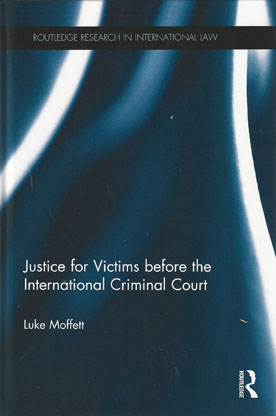
The International Criminal Court (ICC) was created in 1998 and now has 121 state parties, 7 situations being investigated and 18 cases in the process of being prosecuted. The ICC has been heralded as offering 'justice for victims' with the inclusion of a number of innovative provisions for victims, such as participation and reparations.
However, fifteen years after its creation the need to assess the role of victims within the Court's legal framework and jurisprudence remains pressing. Drawing on human rights law and victimology as well as international criminal law scholarship this book analyses the extent to which the ICC can deliver justice to victims of international crimes.
The book explores the nature of international crimes and criminal justice theories which underlie international criminal justice. It assesses the role of victims in the proceedings of the ICC, paying particular attention to their recognition, participation and protection as well as the topic of reparations.
The travaux preparatoires of the ICC and the drafters' intentions behind the victim provisions are discussed before the ICC judges' interpretation of the provisions in recognition, participation and protection is analysed. The book also considers the impact of the International Criminal Court on victims at the domestic level. The book advances an innovative theory of justice for victims before setting out solutions to the current challenges of numerous victims and the increasing costs of international criminal justice.